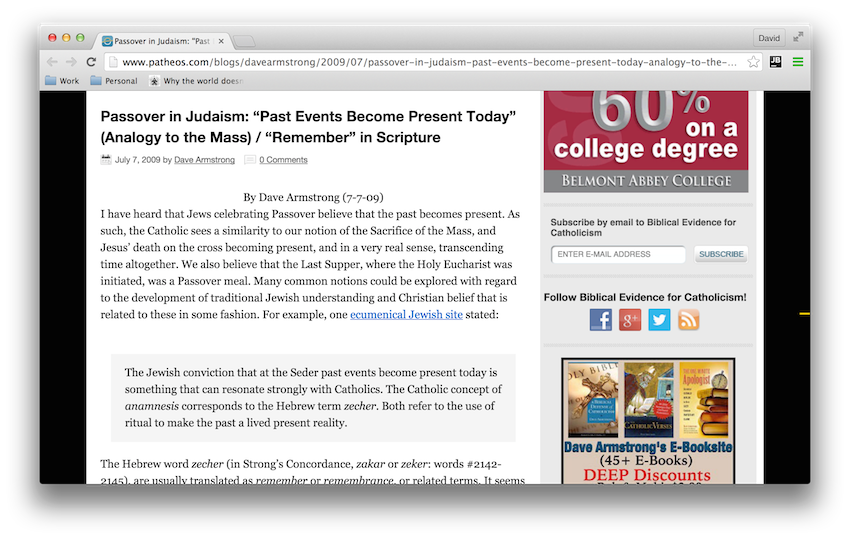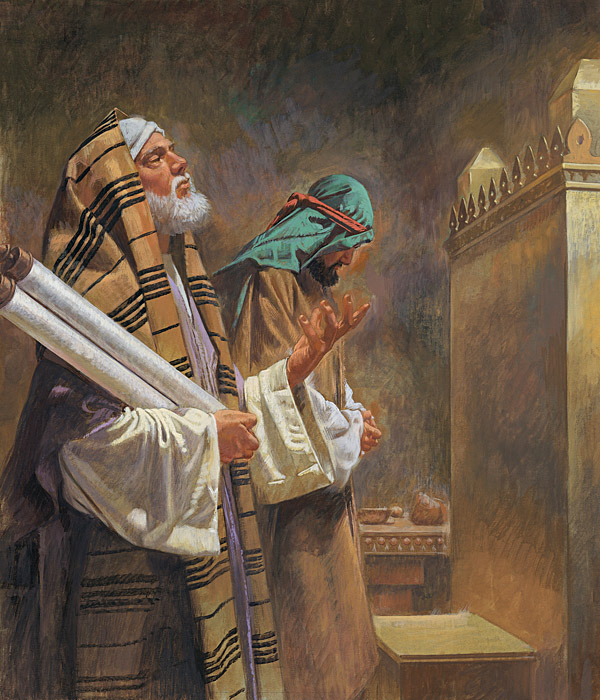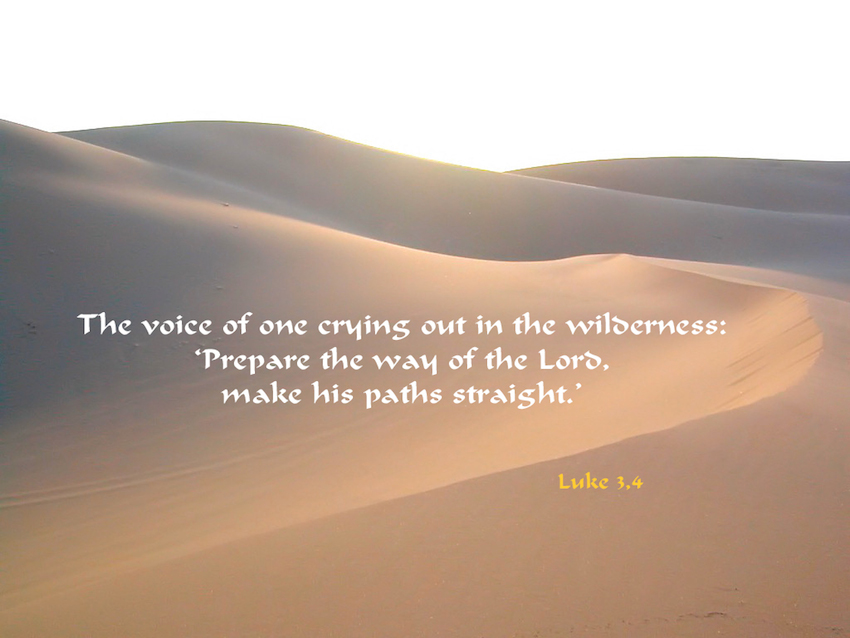Bonus Post: Participating in the Exodus
Given that my last two posts (#1 | #2) have related to the Exodus, my friend Sean sent me a link to an article by Dave Armstrong about the relationship between the original Passover and the Seder meal celebrated by modern-day Children of Israel.
I had heard before from theologians that Jewish tradition spoke about how, when present-day Jews celebrate Passover, there is something of a mystical participation with the original Exodus under Moses. This understanding of participation in a past event has an application in the realm of Catholic apologetics. I have often spoken to Protestants who insist that when we speak of the Lord’s Supper as being a “memorial” (“anamnesis” in Greek), it simply means that we remember what Jesus did and nothing more. A look at Jewish tradition present some problems with this understanding.
For the rest of this post, I would just like to offer a few quotations from Dave’s article, but I thoroughly recommend that you read the whole thing.
In a book specifically about the Passover celebration, Martin Sicker writes:
The Haggadah then continues with a statement that is also found in the Mishnah that calls upon each participant in the Seder to share vicariously in the experience of the Exodus.
In every generation one is obliged to view oneself as though he [personally] had gone out from Egypt. As it is said: And thou shalt tell thy son in that day, saying: It is because of that which the Lord did for me when I came forth out of Egypt (Ex. 13:8).
The Haggadah then amplifies this teaching, providing an appropriate biblical prooftext in support of its elaboration.
The Holy One, blessed is He, did not redeem only our ancestors, but also redeemed us along with them. As it is said: And He brought us out from thence, that he might bring us in, to give us the land which He swore unto our fathers. (Deut. 6:23).
. . . The Mishnah calls upon each participant in the Seder to make an intellectual leap across the millennia and thereby to share directly in the experience of their ancestors.
Another Jewish source concurs:
By participating in the Seder, we are vicariously reliving the Exodus from Egypt. Around our festival table, the past and present merge and the future is promising.

 Earlier this week, we had catechesis at my parish. We’ve been meeting for the last few months and we’re currently working our way through the Liturgy of St. John Chrysostom.
Earlier this week, we had catechesis at my parish. We’ve been meeting for the last few months and we’re currently working our way through the Liturgy of St. John Chrysostom.
